Change the Fuel, Not the Car: The Apex Interviews P1 Fuels CEO Martin Popilka
This week on The Apex we sat down for a conversation with Martin Popilka, CEO of P1 Fuels. They are a company leading the development of 100% fossil free fuel, and are the official fuel supplier for the World Rally Championship. Their mission is to change the fuel, not the car, and their work extends beyond motorsport and into the world of classic and everyday vehicles. Sebastian Vettel is also a regular customer, and uses their fuel to run his classic F1 cars! It was an insightful, eye opening conversation that left us feeling optimistic about the future of the internal combustion engine.
Archie Hill interviews Martin Popilka for The Apex by Custodian. Recorded and produced by Archie Hill. Transcribed by David Marcus.
Martin, thank you so much for your time. How are you?
Thank you Archie, I am doing very well, super excited to be here today with you to talk about what we have been working on.
I am excited too. You certainly hear a lot of rhetoric in the media around the environment and sustainability, but there doesn't seem to be a huge amount of noise being made about the development of these fuels, which is something we are quite excited about, so keen to delve in and learn a bit more. I suppose to start with, what was it that drew you to getting involved with P1 Fuels?
It is a good question, the true answer to that is I used to race cars, so I am just going to come right out right in the beginning. I am a car guy, love cars, and honestly I thought there has to be a more environmentally friendly way to enjoy the internal combustion engine. So I embarked on this journey of actually, as you said in the intro, changing the fuel, not the car, because the fuel is the source of the CO2 emissions we need to avoid.

I have to follow up then if you are a racing guy, what were you racing?
I was rallying. I wasn't the best rally driver out there, but it was my passion, my life and hobby. So the last car I rallied was a Mitsubishi Lancer Evo 6 Group N.
That is very cool. I want to talk about the World Rally Championship a bit later, but that is fantastic. To clarify, I mentioned a little bit in my introduction, but what does P1 fuels actually do and what's the overall aim?
We make fuel that's 100% fossil free, meaning it has no fossil components. One of our USPs or our main USP is that the fuel works in any internal combustion engine without modification, which means you have the potential to decarbonize all ICEs globally. Our aim is to bring these fuels to everyone without them even knowing that they run synthetic fuel. That's the beauty of e-fuels or even biofuels, that you can actually put them into the current infrastructure without consumers ever noticing that they are running a 100% green fuel.
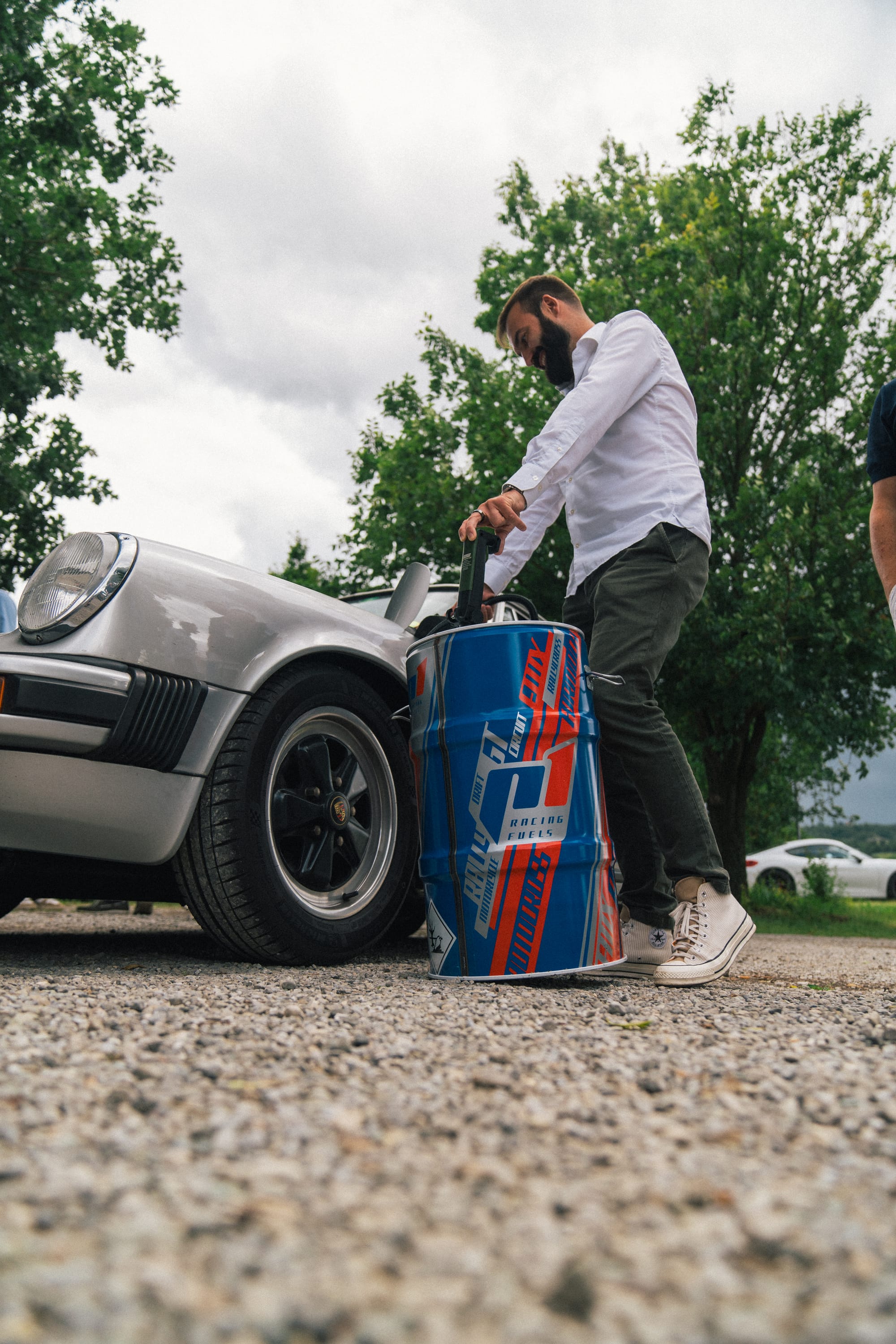
I am no scientist but could you give us a little bit of a breakdown of the manufacturing process?
Our fuels are made using renewable electricity to make green hydrogen, to which we add a carbon molecule in the form of carbon capture. That is then converted into methanol as an intermediate product. Using our proprietary technology, which consists of our advanced catalyst and process design, we then convert the methanol into a drop in gasoline. The key part here is that gasoline can be used straight in the car, in the engine, and doesn't have to undergo upgrading refineries or blending facilities. The overall beauty of this process is that we are agnostic as to where the methanol comes from. So we can also, and we already do, process biomethanol into exactly the same product, which allows us to scale much quicker and utilize currently available biomethanol on the market.
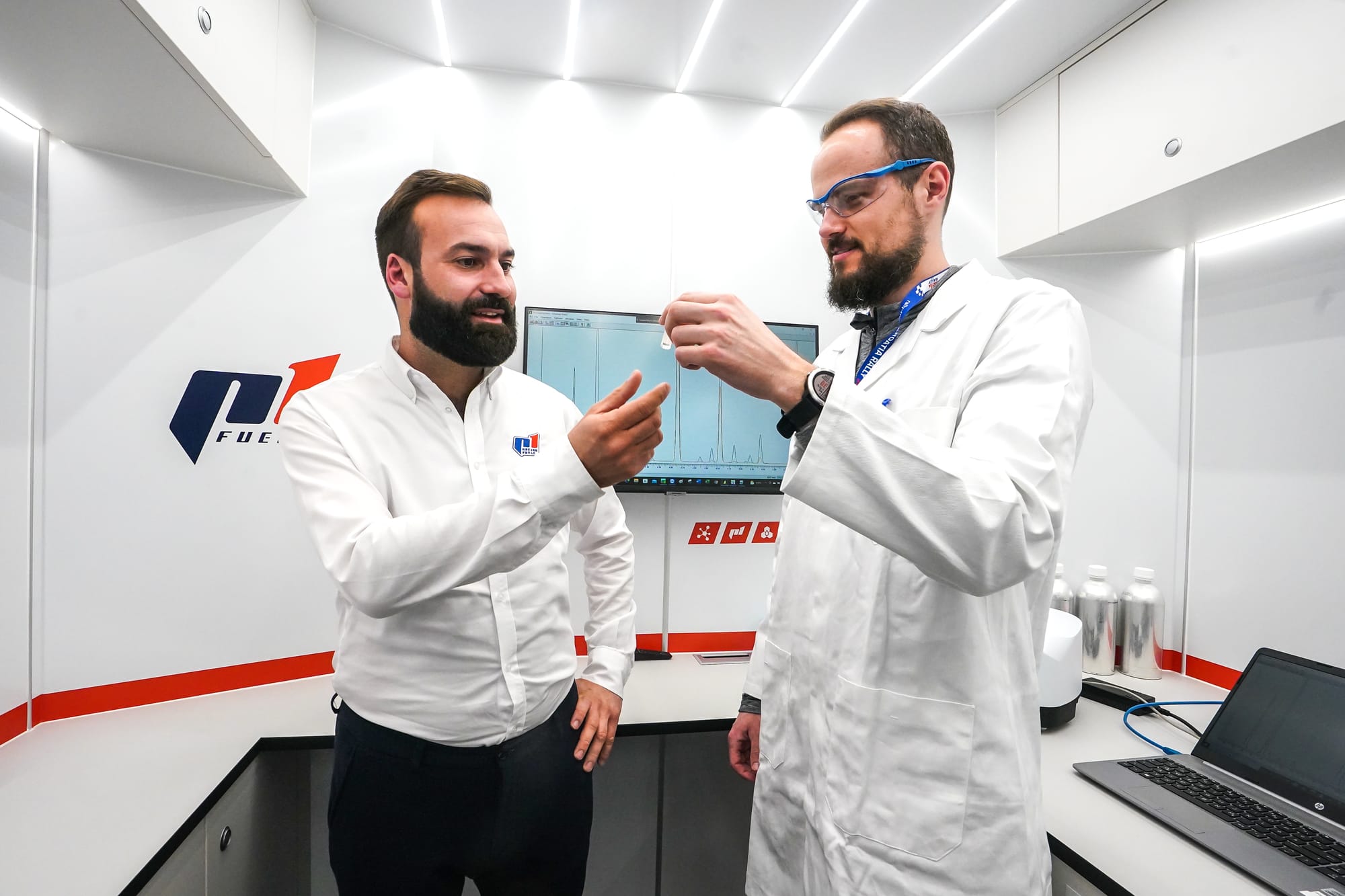
What's the sort of reduction in CO2 emissions from P1 fuels compared to normal fossil fuels?
It's massive. It's really hard to believe for some people, but our current greenhouse gas reduction is certified at 77.8% over fossil gasoline, which alone is a lot, we are talking about a similar overall life cycle footprint of a battery electric vehicle. So we are in that range already, but our aim is to reach up to 95% of greenhouse gas reduction.
How do you get from 77% to 95%, what does that evolution look like?
One of the key factors there is really transitioning from solely bio-methanol feedstock to the e-methanol feedstock, which is derived from the green hydrogen pathways I mentioned earlier. By doing so and co-locating our production units at the sites where e-methanol is produced or will be produced in the future, we heavily cut down on CO2 emissions within the logistics space, so transporting feedstock from one place to another.
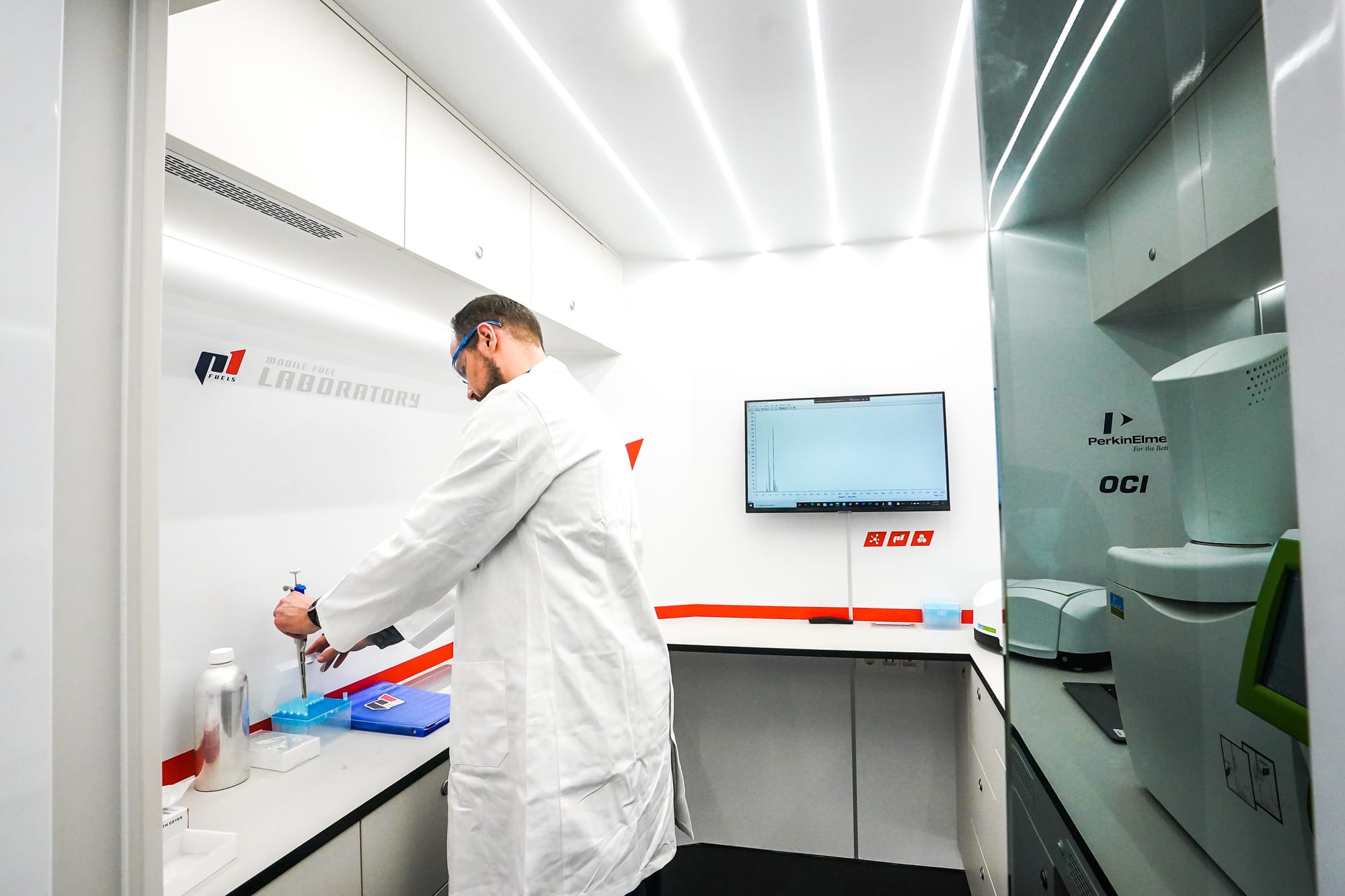
Is this feedstock element the hardest part of the manufacturing process?
The hardest part of the manufacturing process is really developing a fuel that you can use in any car, that's the most challenging thing and where we really blow the competitors out the water to be quite honest. That takes a lot of work, a lot of real life testing and engine time. You really can't replicate the marriage of fuel and engine in the laboratory or on a PowerPoint slide, you really have to put that fuel into as many conditions as possible. That's where we excel, and I think that was and will continue to be the biggest challenge, because we do have to really take into consideration that we currently supply everything from Formula One engines to lawn mowers, and each of these internal combustion engines have a slightly different requirement for the fuel, so that's the most fun and challenging aspect of the work.
Is that where a lot of the time, resources and money is being spent?
It's in the R&D space and it's working closely with car manufacturers, engine engineers and the whole community at large actually to make sure that they are very comfortable with the fuel in any condition in any application.

I understand a lot of the development is being done in and around motorsport, why is that?
Some people use motorsports as a marketing platform, they put a sticker on a Formula One car, claim that it runs their fuel, which it doesn't really. Growing up in motorsport and most of our team being motorsport fanatics, we actually embrace motorsport for what it is, an advanced technology development platform. We have used this approach from the very beginning, where we work hand in hand with the engine engineers, taking their feedback, reformulate the fuel, change the production process, and really strive to make the fuel work. That's why we are the official partners of the World Rally Championship, because the FIA was very kind enough or very visionary enough to allow us to actually develop the fuel in the championship. This is kind of unheard of when you think about official fuel supply in FIA World Championships. Usually you have one product that you have to supply over the course of the contract. In light of the importance and in light of the fact that the FIA World Rally Championship was the very first ever global championship to switch to a completely fossil free fuel, we were able to incrementally develop the product with the car manufacturers and release new versions of the fuel year over year.

Is there a particular reason why you've gone World Rally Championship, is there something about rally that makes it a good proving ground or is this just your love for rally?
Unlike Formula One, and don't get me wrong, I'm a huge fan of Formula One, but unlike Formula One, here you can supply all the competitors, so basically you are the sole supplier. In Formula One, each competitor has the choice of what fuel they use as long as it meets the specification. In the WRC, you get nominated for your technical merit, pricing or whatever, and then everyone uses it, which gives you an enormous amount of data and really valuable feedback that you cannot replicate in laboratory conditions. Imagine us working with the likes of Toyota, Hyundai, Motorsport, Stellantis, and others from conditions such as the deserts in Kenya to the Arctic Circle in Northern Sweden, where you operate the cars at minus 30ºC. So all of these touch points and all of the feedback and engine testing that we were able to do was fundamentally instrumental in actually getting out a fuel that we are confident performs perfectly well in passenger cars.

I believe you are also involved in other aspects of motorsport as well, what other areas are you involved in?
We are involved across a wide range of motorsport applications, starting from grass roots racing such as the FIA karting championship, the champions of the future, and other applications where we actually have six-year-old children starting their careers in motorsport on a fossil-free fuel. Imagine how awesome that is. When I was racing, I was battling a stigma, this negative stigma of polluting the environment, doing something wrong. If you are not in Formula One or some world championship, you are actually just doing it for fun, and it becomes very hard to gain whatever that sponsorship or even social acceptance. I was very proud that we started with the karting championship, because everyone who starts their racing career is already doing so in a very environmentally friendly and green way, and it's actually contributing to scaling these technologies to the mass market. That's one of my favourite championships that we supply, but we also work in a lot of GT racing. We do two wheel racing, motorcycle racing. Historic racing is definitely one of them. One of our very good customers, Sebastian Vettel, has used the fuel to decarbonize his Formula One cars at historic racing such as Goodwood. There is quite a few world firsts that we have achieved, including the very first synthetic fuel to be supplied at the Mille Miglia for one iconic car manufacturer. It goes to say how versatile these fuels are and what they can mean for global greenhouse gas reduction pathways.
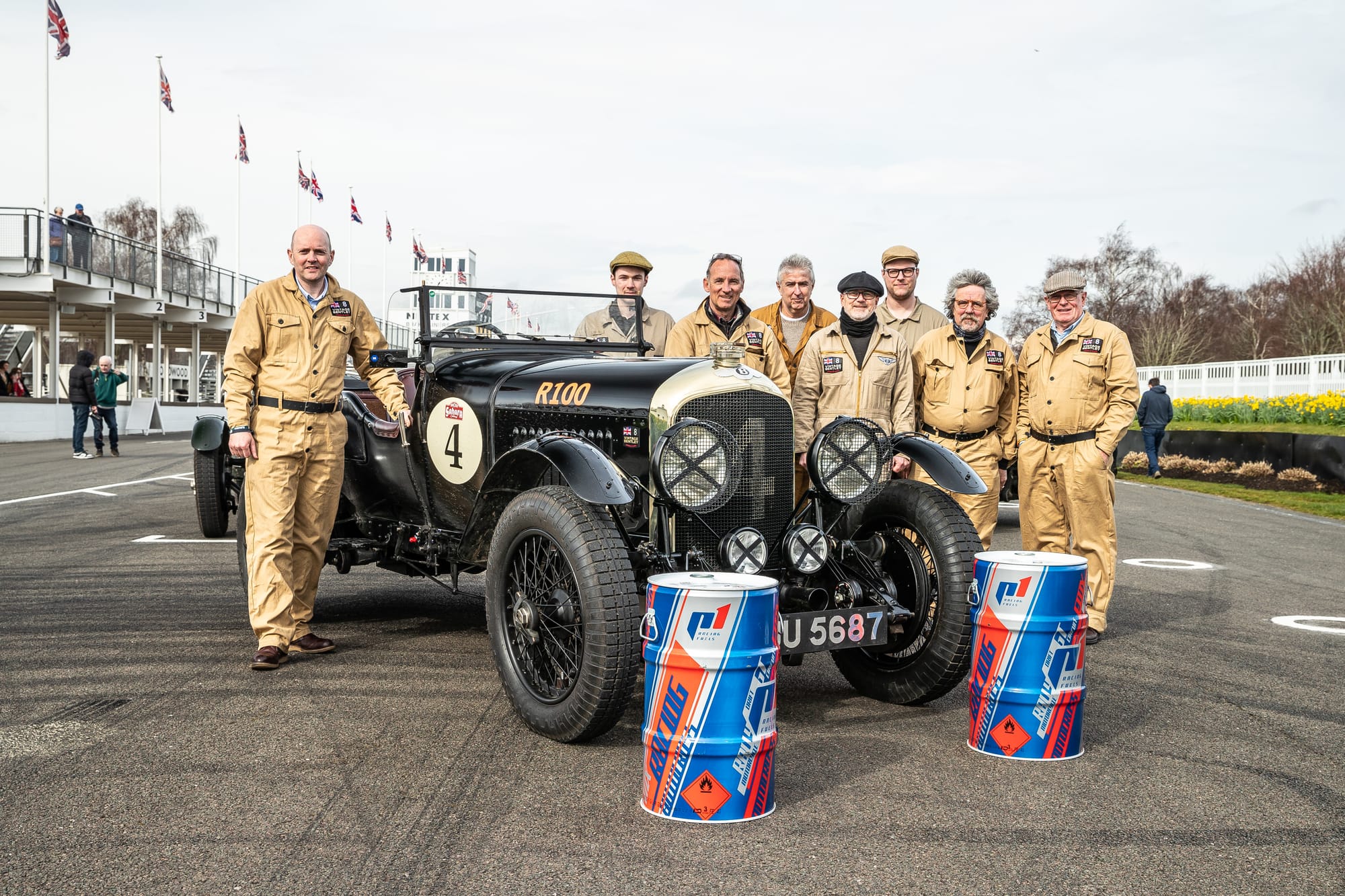

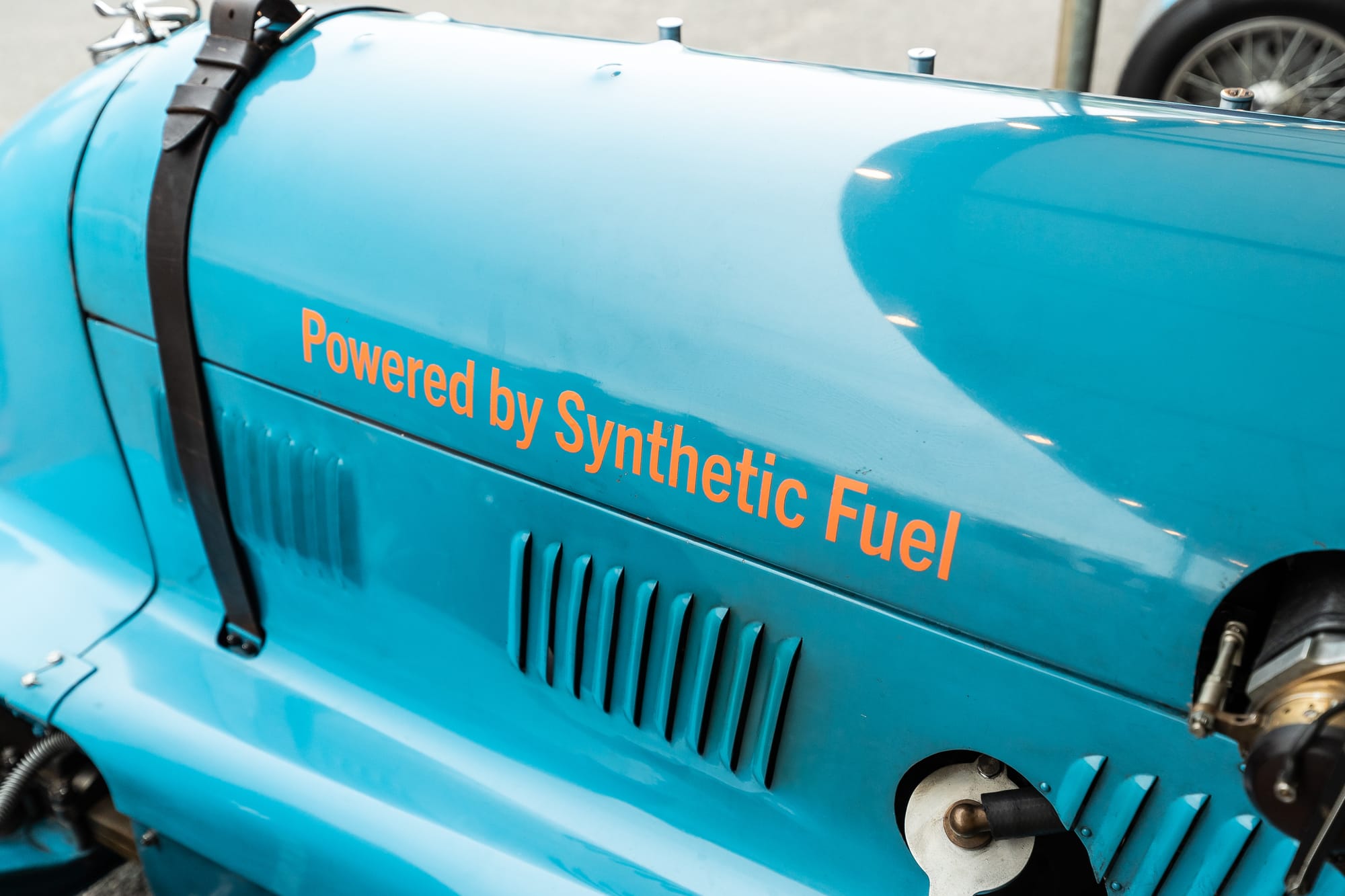
Source: P1 Fuels
Will there come a time, hopefully relatively soon, where there is a mass adoption across all forms of motorsport that adopt these fuels, is that realistic?
Motorsport is one of those industries or verticals that has no excuse not to run sustainable fuels. Quite frankly either the championships want to be part of the solution of global warming or part of the problem, and I don't mean to be harsh, but if six year old children run this fuel, so can anyone else.
This is quite a technical process and there are still a number of challenges to be overcome I am sure, a lot of talk about the price of the fuels, I think that's come down over the years as the development has improved, but is that something that will continue to come down or is price always going to be a bit of a challenge?
That's a good question and a very complex one. To start out, we cut the price by half since we started. Cost reduction is real, it's occurring, it's happening, it always goes hand in hand with scaling the output of fuel. We are currently selling the low millions of litres, which obviously is not enough, it's not comparable to a traditional fossil fuel refinery for example, but we do have clear sight to reach fossil fuel cost parity sometime in the mid 2030s, and that's what we are striving for.

Obviously there are industries as well that are pushing the development of sustainable fuels. I think aviation is certainly one of them, the aviation industry is much bigger industry than the automotive one, is there a risk that they will come in and pull resources in their direction or is that competition in that respect or is it not quite like that?
That is a common misconception what you just said [laughs].
Hahaha, correct me on it!
On a day to day basis, so let's look at it this way, if you think about the transportation industry, that industry represents about 30% of all greenhouse gas emissions. What's really concerning about the transportation vertical is that it continuously increases CO2 emissions year over year. It's one of the most important sectors we have to decarbonise. When you deep dive into where is the CO2 coming from and you look at what constitutes these emissions, it's not aviation. Aviation is about 10% only of all CO2 emissions within that sector. The majority of those CO2 emissions actually come from passenger cars and vans, almost 50%, 48% according to the EIA. So it is the most important sub-segment of the transportation sector that needs to be decarbonised. Up until now, politicians and the general public thought hey, we're going to decarbonise these passenger cars by electrifying them, which is a great idea, but the fact of the matter is that we have learned it is much more challenging than we assumed.
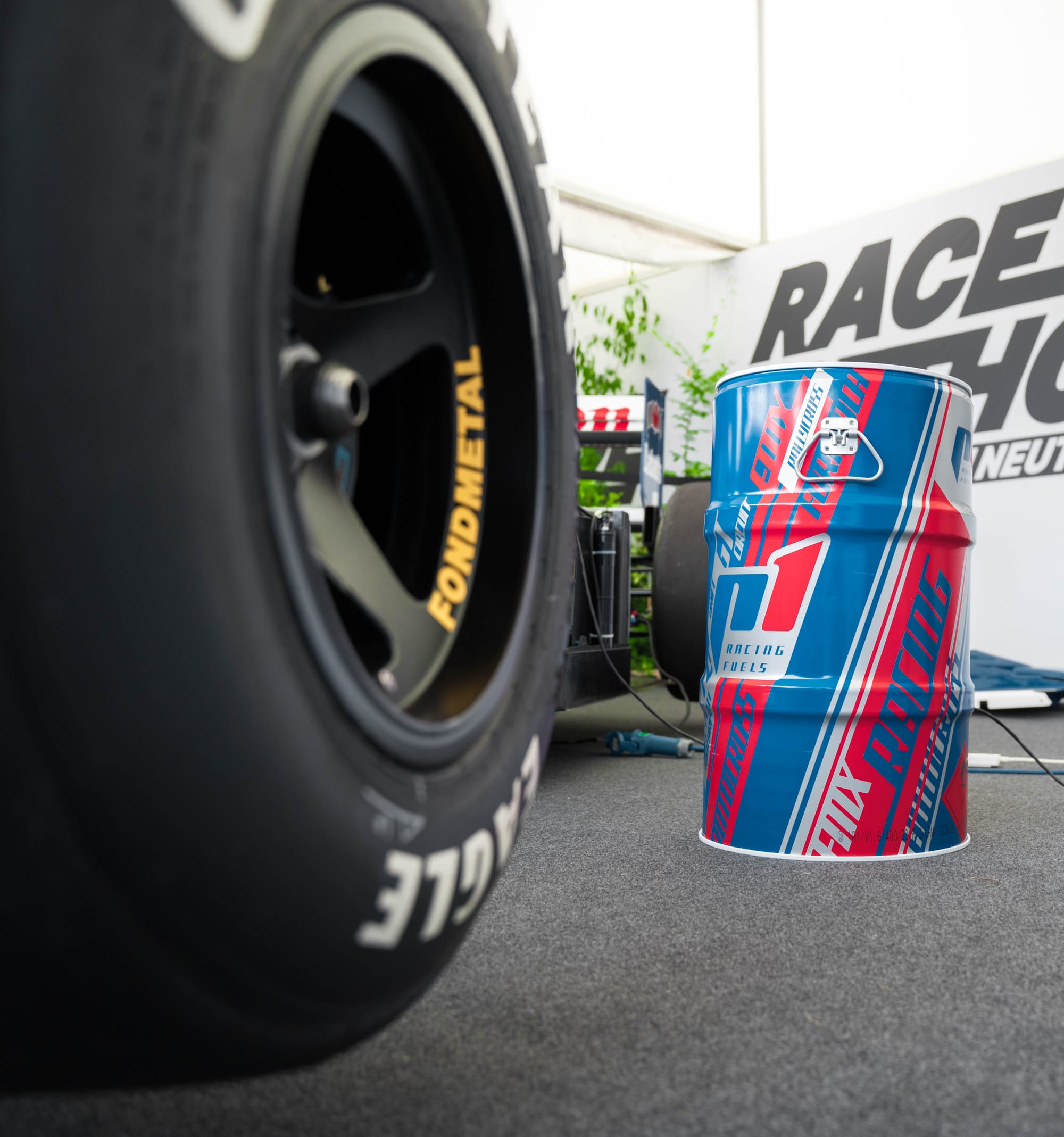
We already know that electrification or full electrification within that segment is heavily jeopardised and delayed. We see that, whether that's consumer preference of people not really wanting to buy EVs if they are not subsidised, or whether we see it on the cost side, on the car manufacturer side, where they are not making money selling the EVs even without the subsidies. We really have to look at it from the other way around, where if we want to scale low carbon liquid fuels, we have to take into consideration the automotive segment, period. Especially gasoline, because as I mentioned, it's the hugest one. Take the United States for example, I think it's 1.2 billion litres that are consumed a day of gasoline. This is where the CO2 emissions are. As a society at one point we have to come clean and say hey, we have to be technology agnostic to decarbonise passenger cars. That's not only electrification, that has to be a whole other solutions in order to reach those climate targets, including our fossil free gasoline.
I am glad you pulled me up on that. I suppose you touched on it a little bit, the EV angle as well as another alternative, and I know hydrogen is in that circle as well, will these alternatives all co-evolve or will one become the dominant, do you think sustainable fuel will become oh, we have cracked it, everyone just chuck that in your car, we don't need EVs any more?
That's a good question, I don't know what the what the future will bring, but what I believe is that we will need all technology pathways. So a combination of electrification, of hydrogen and of synthetic fuels, and I think it will really depend on the country and location and the specific markets where this decarbonization has to happen. The advantage of our fuel and e-fuels or biofuels in general, is that you can utilize the current infrastructure, whether that is the fuel stations, the cars themselves. There are 1.3 billion internal combustion engines on the road today, so if you really want to decarbonize something quickly and efficiently, it really comes down to changing the fuel. Are electric vehicles important? Absolutely they are. They do play a pivotal role in reaching our climate targets. One view is, what's the best decarbonization strategy, but the second is timing, and that's something we don't really talk about, where we need to decarbonize now. If we are to reach our climate targets, according to the Paris Climate Agreement and other national greenhouse gas reduction strategies, we only have a limited amount of CO2 budget left. The more we prolong a technology agnostic approach, the less likely we are to reach our climate targets, so it's going to have to be everything.


What is happening in the political arena? Are you as a company presenting to politicians and trying to get them to look at what you are up to and educate them on what's going on in this space?
We tried. What I have learned is that educating politicians is challenging. It's probably more challenging than the technology required to develop these fuels. This segment is so heavily politicized and driven by so many subsidies and so many stakeholders, that it would be naïve to assume that a small start-up such as P1 fuels has any say in this political arena. We have offered the German Federal Government to use our fuels in their vehicles that drive the various politicians, because they use internal combustion engines by the way, and they haven't. So the technology is here, the political framework not really. We decided a long time ago at P1 is that we are going to strive to make these fuels at fossil fuel cost parity, then it doesn't really matter what the politicians say, think, or do, because the fact of the matter is that there are 1.3 billion cars on the road now, they are not going to disappear. Looking at the forecast at the best electrification adoption rate, we are going to have a billion in 2060 still. So either these cars are going to use fossil fuels, if the current political framework will be so fragmented, or a company such as ourselves gets the fuel to cost the same as fossil fuel, then they are just going to use that. I think that is how we are trying to navigate this space. You see a lot of incentive for the uptake of sustainable aviation fuel, but you don't see much for automotive fuel. I think our time is better spent developing the product, working with our customers and making sure that we get this into as many engines as we can.
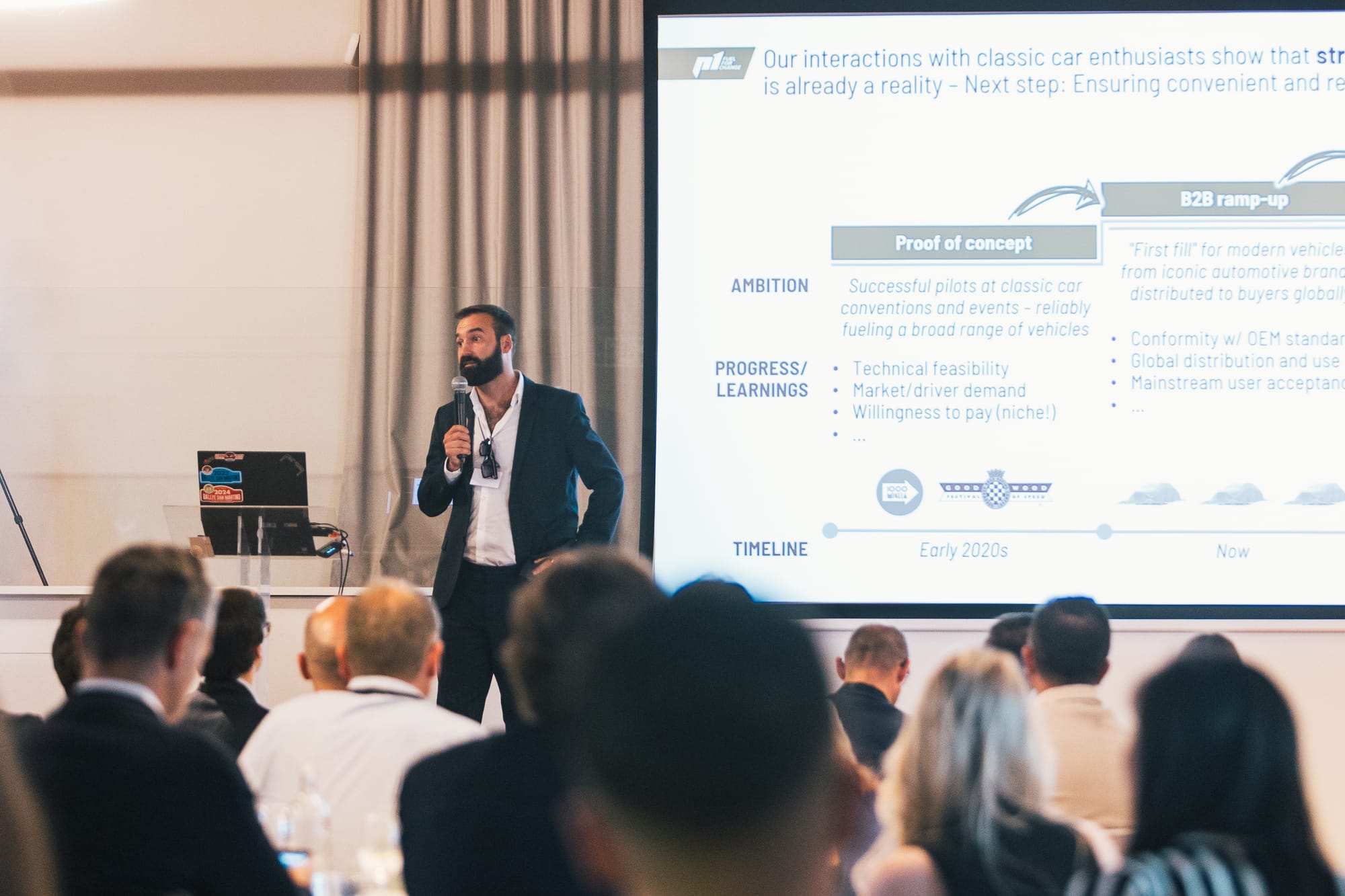

For the people that are listening to this that potentially own a classic car and are very strong advocates for the internal combustion engine, what does this mean for them, can they buy the fuel, can you run it already in a normal engine?
Absolutely, we have fuels that meet the European road fuel standard, the EN-228, you can purchase these through the P1 distribution network or you can just send us an email and we send you a drum. Clearly part of the cost of our fuel and why it is higher than fossil fuels is the fact that we sell our fuels currently in drums. That is inefficient to really decrease the cost, but if there is someone who wants to run the fuel, we have it in stock and people can go ahead and buy it.

I think you touched on it already, there's no alterations required to the cars to run these, you don't need to change the fuel lines or anything like that?
None, it works perfectly. We have a lot of proof points. We have quite iconic people stating that, whether those are some of the car manufacturers themselves, whether those are white papers that we publish with various universities, or whether those are early adopters such as Sebastian Vettel, we have proven it works, so they don't have to fear in putting it into their IC engines. That is my personal guarantee to the petrol heads out there.
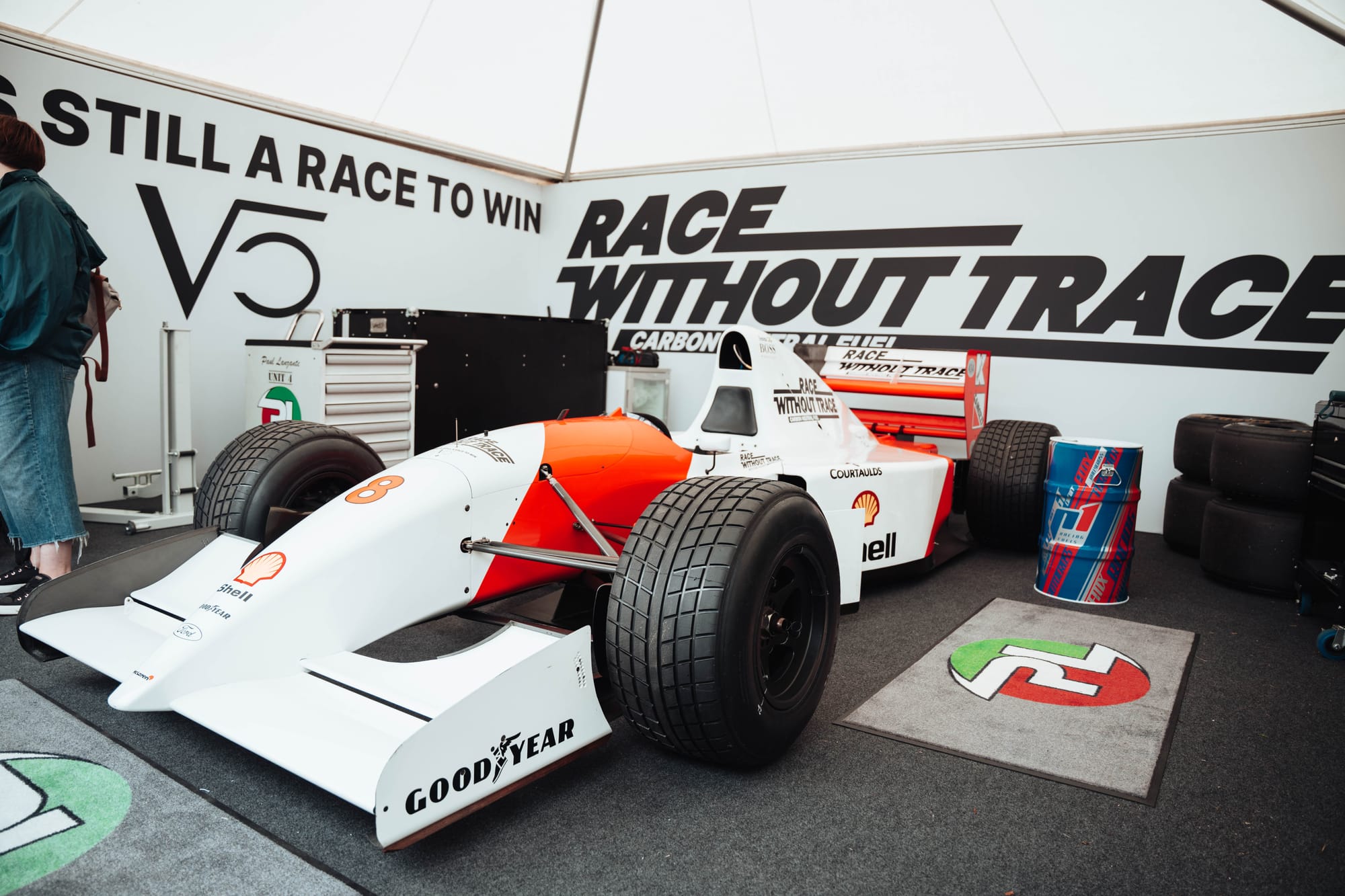
What is the octane rating of the fuel, is it just the same?
Our most sold fuel is 98 RON, so it's basically the high octane pump fuel. We also have specific variations for some applications which are higher on, but for your daily driver, yes, we have the 98 RON pump fuel.
I know this is probably an impossible question, but how long until I can drive down to my local petrol station and put this fuel from the pump into my car?
We are planning something quite special. I don't want to necessarily mention it now, but I think it will be sooner than you think.
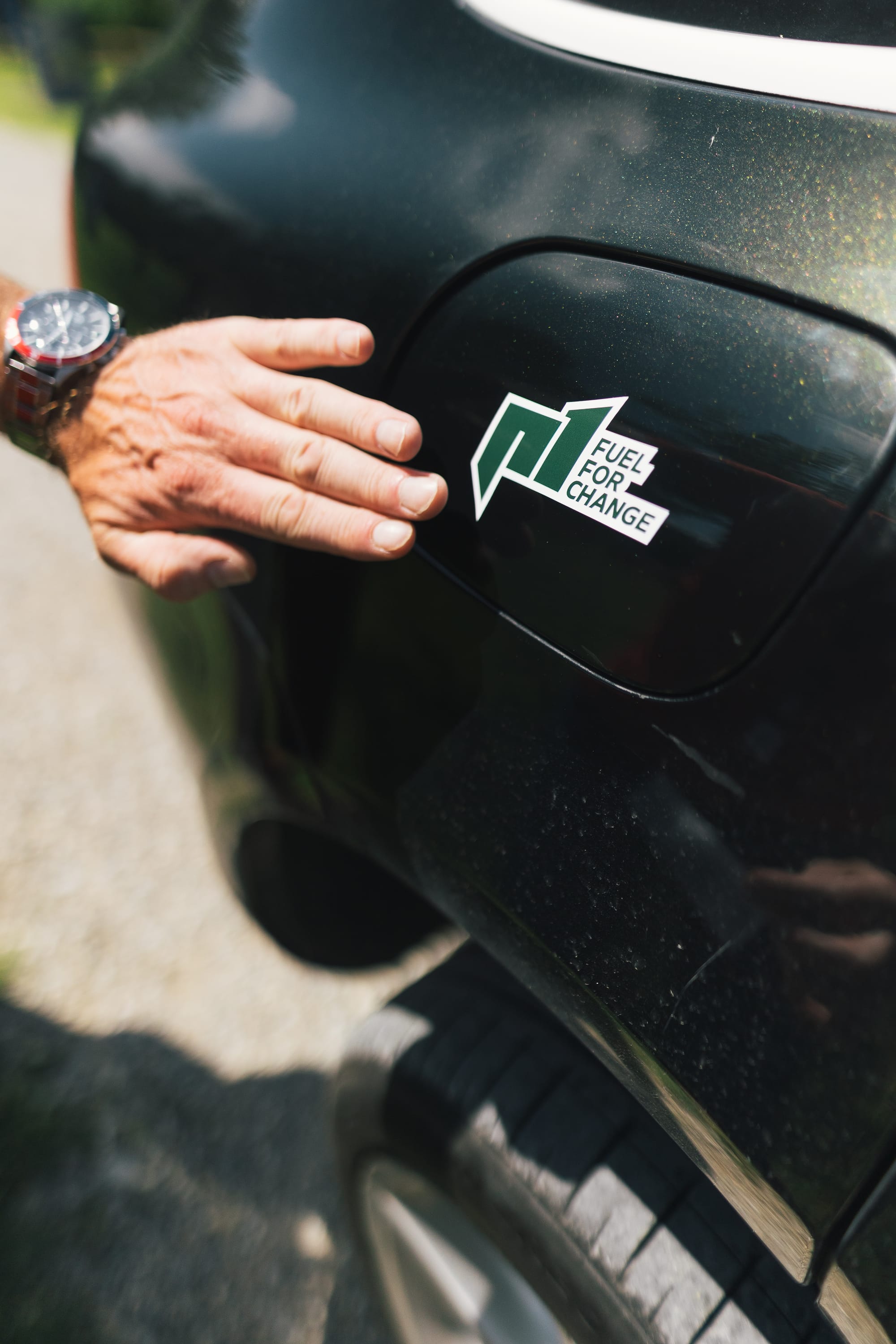
That's exciting, that's a nice transition into some quick fire questions, but that's very encouraging, so thank you for the insights Martin. I did want to finish up by asking you some quick fire questions that are a little bit more light-hearted and not hopefully so intense. Rally stage or race track?
Rally stage.
That was quick.
That was an easy one.
Modern or classic cars?
Classic.
Who is your racing hero?
Ayrton Senna. That's a very common one I bet you get.
It is, I wasn't sure if I was going to get a rally driver, but Ayrton could've done it all.
If you want a rally driver, it would be Michèle Mouton.
What's in your dream three car garage?
Clearly it's the Lancia Delta Integrale, that's one that I must have eventually. Then it's a Ferrari F40, just because I grew up with that car. I didn't have it but it was on my poster, I was completely obsessed with it as a kid, and then a 911 GT3.
I think that is my favourite one we have had to date, that's pretty similar to what mine would look like as well. What a garage that is. Martin, thank you.
A hypothetical one.
Thank you so much for your time Martin. Where can people find out a bit more about P1 fuels, have you got a website, Instagram, what's the deal there?
The easiest way is to find us on Instagram (@p1fuels) or www.p1fuels.com.
I will leave all the links down in the show notes so people can find those. If you are listening to this and you want to check out Custodian as well, you can do so at www.custodian.club. We have also just launched insurance designed for enthusiasts, so go and check that out. Make sure to like the video and subscribe to the channel if you haven't already. I will see you in the next one. Martin, thank you so much for your time.
Thank you, Archie.

